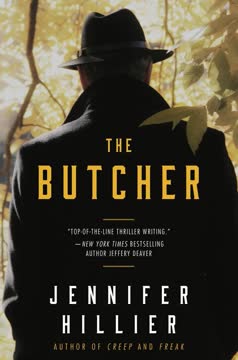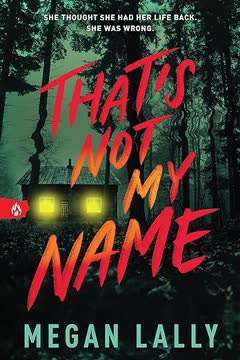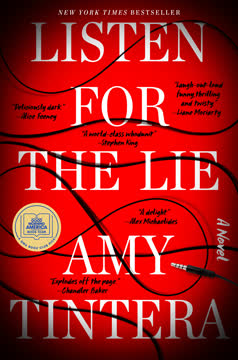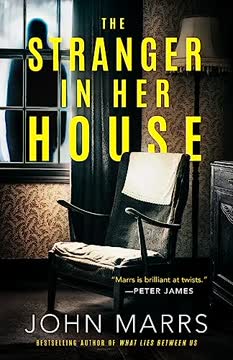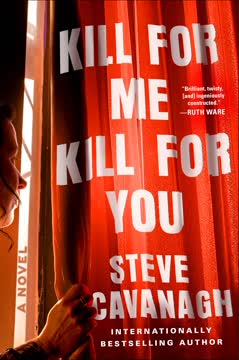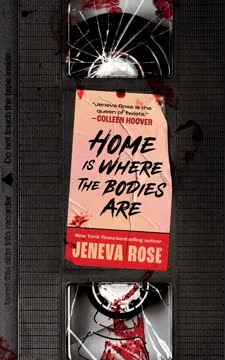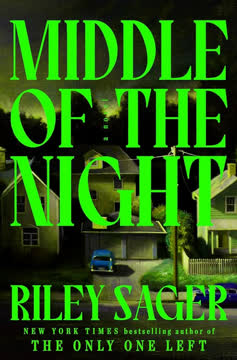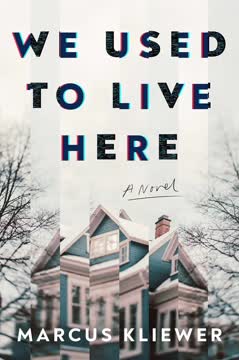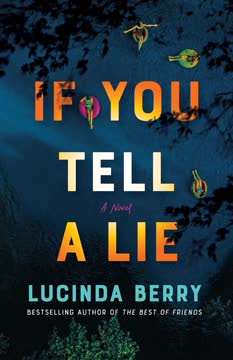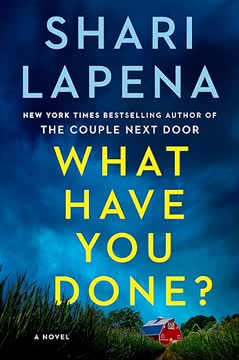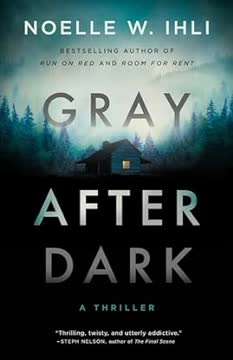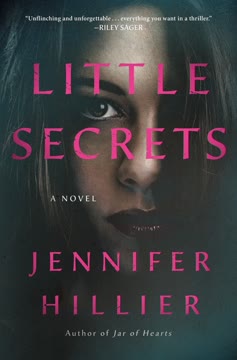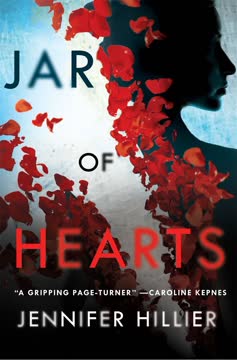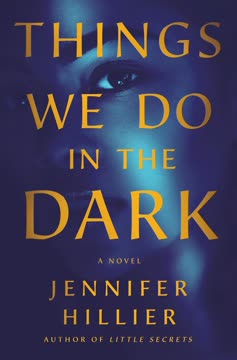Plot Summary
The Night the Butcher Fell
In 1985, Seattle's most notorious serial killer, the Beacon Hill Butcher, is seemingly brought down in a dramatic police raid led by Captain Edward Shank. The city breathes a sigh of relief as Rufus Wedge, the supposed Butcher, is gunned down. Shank becomes a hero, his career made by this single act. But as the city celebrates, a shadow lingers—Edward's gaze on the dead man is cold, almost regretful. The Butcher's reign of terror is over, or so everyone believes. Yet, beneath the surface, the truth is far more complicated, and the real monster is not the one lying dead in the rain.
Inheritance and Hidden Scars
Decades later, Edward Shank, now elderly, prepares to leave his lifelong home for a retirement residence, gifting the house to his ambitious grandson, Matt. The house is a trove of memories—some cherished, some dark. As Matt moves in, he is unaware of the true legacy he's inheriting. Edward, meanwhile, is restless, haunted by the past and the urge to "hunt" again. The house, with its antique piano and hidden corners, is more than a home; it is a silent witness to unspeakable acts, and the transfer of ownership is the first domino in a chain of revelations.
The Crate in the Backyard
During renovations, Matt's contractor unearths a sealed crate buried deep in the backyard. Inside, Matt finds women's clothing, jars containing severed left hands, and a VHS tape. Watching the tape, Matt is horrified to see his grandfather, the city's hero, torturing and murdering a young girl. The realization that Edward is the true Butcher shatters Matt's world. He is paralyzed by fear, disgust, and the knowledge that his family's legacy is built on monstrous lies. The crate is not just evidence; it is a Pandora's box that, once opened, cannot be closed.
The True Crime Obsession
Samantha Marquez, Matt's girlfriend and a true crime writer, is obsessed with the Butcher case, convinced her own mother was one of his victims. Sam's research is both professional and deeply personal, as she seeks closure for a childhood marked by loss. Sam's investigation leads her to question the official story, suspecting that Rufus Wedge was not the real killer. Her relentless pursuit of the truth brings her into contact with survivors, police, and, unknowingly, the real Butcher himself. The lines between research and obsession blur as she gets closer to the heart of darkness.
Secrets Beneath the Surface
As Matt grapples with the horror of his discovery, his relationships begin to unravel. His ambition and anger alienate his friends and staff, while his inability to confide in Sam creates a chasm between them. Sam, meanwhile, is drawn deeper into her investigation, meeting a woman from her mother's past who claims to know the Butcher's true identity. The past and present collide, and the secrets buried beneath the surface threaten to destroy everyone involved. The house on Poppy Lane becomes a crucible where love, guilt, and violence simmer.
The Chief's Itch Returns
In the retirement home, Edward Shank is bored and restless. The "itch" to kill, long suppressed, returns with a vengeance. He murders a fellow resident, staging it as an accident, and feels invigorated. The thrill of the hunt is back, and Edward is emboldened by the knowledge that he has fooled everyone for decades. His interactions with Sam are laced with menace and manipulation, as he toys with her curiosity and her connection to the past. The Butcher is not done yet; he is merely waiting for the right moment to strike again.
Love, Anger, and Ambition
Matt's ambition and unresolved anger boil over, leading to a fatal confrontation with his friend and sous-chef, PJ Wu. In a moment of rage, Matt kills PJ and, with Edward's cold guidance, dismembers the body to cover up the crime. The act binds Matt and Edward in a web of complicity and guilt. Meanwhile, Sam's relationship with Matt deteriorates as she senses his growing darkness and emotional distance. The pressures of love, ambition, and buried trauma push everyone to their breaking points.
Meeting the Past
Sam meets Bonnie, a woman who knew her mother and claims to have survived an attack by the real Butcher. Bonnie's story confirms Sam's suspicions that the killer is still alive and that her mother was indeed a victim. But Bonnie is terrified, and before she can reveal the Butcher's name, she is murdered. The past refuses to stay buried, and Sam is left with more questions than answers. The circle of victims and survivors tightens, and the danger grows ever closer.
The Monster's Legacy
DNA evidence from the new murders links the killer to both Edward and Matt, revealing a horrifying truth: Matt is Edward's son, the product of a long-buried family secret. The legacy of violence and abuse is not just metaphorical but literal, passed down from father to son. Matt is forced to confront the reality of his origins and the darkness within himself. The revelation is devastating, shattering any remaining illusions about his family and his own identity.
The Father's Sins
As the police close in, Matt confronts Edward, demanding the truth about his mother and his own paternity. Edward confesses to everything: the murders, the cover-up, and the abuse that led to Matt's birth. The confrontation is explosive, with decades of pain and rage erupting in violence. Edward, ever the manipulator, tries to draw Matt into his twisted worldview, urging him to embrace the darkness they share. The sins of the father threaten to consume the son.
The Copycat Murders
As the city reels from the revelation that the Butcher may still be at large, new murders occur, mimicking the original killer's signature. The police, led by Detective Sanchez, scramble to connect the dots. Sam, wounded but undeterred, continues her investigation, piecing together the evidence that will finally expose the truth. The copycat killings are not just a distraction—they are the Butcher's way of reclaiming his legacy and taunting those who seek justice.
The Web Tightens
The investigation accelerates as DNA evidence, survivor testimony, and the unraveling of family secrets converge. Matt, wracked by guilt and fear, considers turning himself in, but the web of lies and violence is too tight. Sam, now a target herself, must rely on her wits and courage to survive. The police close in on Edward, but the Butcher is determined to go out on his own terms. The past and present collide in a final, bloody reckoning.
The Unraveling
In a climactic confrontation, Edward attacks Sam, stabbing her and forcing Matt to choose between saving the woman he loves and confronting the monster who made him. The police arrive as chaos reigns, and Edward flees, determined to orchestrate his own end. The truth is finally out: the city's hero is its greatest villain, and the cost of silence and complicity is paid in blood.
The Final Confessions
Edward retreats to his remote cabin, donning his old police uniform and preparing for a final showdown. The police surround him, and in a blaze of gunfire, the Butcher is brought down. His death is both an ending and a beginning—the end of a reign of terror, and the start of a painful reckoning for those left behind. The city mourns and celebrates, unsure how to process the fall of a legend.
Blood and Betrayal
Matt is arrested for PJ's murder, his confession sealing his fate. Sam survives her wounds, forever changed by the violence and betrayal she has endured. The city grapples with the revelation that its protector was its predator, and the survivors must find a way to move forward. The legacy of the Butcher is one of blood and betrayal, but also of resilience and the possibility of healing.
The Butcher's End
The media frenzy fades, but the scars remain. Sam, now a celebrated author, rejects the spotlight, choosing instead to grieve and rebuild. Matt faces justice, accepting responsibility for his actions. Detective Sanchez, haunted but resolute, reflects on the cost of truth and the necessity of facing the darkness within and without. The Butcher is gone, but the lessons of his crimes linger.
Aftermath and New Beginnings
In the aftermath, Sam and Jason, her lifelong friend, find solace and the promise of new love. The survivors, though marked by trauma, choose to embrace life and the possibility of happiness. The story ends not with vengeance, but with the quiet courage to begin again, to love, and to hope. The past cannot be changed, but the future is unwritten.
Characters
Edward Shank
Edward Shank is the former chief of police, celebrated as the hero who brought down the Beacon Hill Butcher. Outwardly, he is disciplined, charming, and authoritative—a man who commands respect and exudes confidence. Beneath this façade, however, lies a cold-blooded psychopath who is the true Butcher, responsible for decades of torture and murder. Edward's psychological complexity is rooted in his need for control, his lack of empathy, and his ability to compartmentalize his monstrous acts. His relationships are transactional; even his love for his family is tainted by manipulation and violence. As age and boredom erode his self-control, his true nature resurfaces, leading to a final, violent reckoning.
Matt Shank
Matt is Edward's grandson—and, as it is later revealed, his son—raised in the shadow of a family legacy built on lies. Ambitious, driven, and talented as a chef, Matt is also plagued by anger issues and a deep need for approval. His discovery of Edward's true identity shatters his sense of self, forcing him to confront the darkness within his own nature. Matt's relationships are fraught with tension, especially as he becomes complicit in covering up a murder. His psychological journey is one of denial, guilt, and ultimately, a desperate search for redemption. The revelation of his paternity and the violence in his bloodline push him to the brink, but also offer a chance for self-awareness and change.
Samantha Marquez
Sam is a true crime writer whose obsession with the Butcher case is both professional and deeply personal—her mother was one of the killer's victims. Intelligent, determined, and emotionally resilient, Sam is driven by a need for closure and justice. Her relationships are marked by loyalty and empathy, but also by a tendency to lose herself in her work. As she uncovers the truth about the Butcher, she becomes both a target and a catalyst for the final confrontation. Sam's psychological arc is one of transformation: from victim's daughter to survivor, from seeker to truth-teller, and ultimately, from lost lover to someone open to new beginnings.
Detective Robert Sanchez
Sanchez is the detective who bridges the past and present investigations. Methodical, compassionate, and persistent, he is haunted by the unsolved murder of Sam's mother and the failures of the original Butcher case. His relationship with Sam is paternal and protective, offering her support and guidance. Sanchez's psychological strength lies in his ability to face uncomfortable truths and to act with integrity, even when it means confronting the sins of his mentors and the institution he serves.
Bonnie Tidwell (Joyce Kubacki)
Bonnie is a woman from Sam's mother's past who survived an attack by the Butcher. Traumatized and fearful, she carries the burden of knowledge that could expose the killer. Her relationship with Sam is both a source of hope and pain, as she represents the possibility of answers but is ultimately silenced by violence. Bonnie's psychological profile is marked by survivor's guilt, anxiety, and a longing for justice that she is never able to fully achieve.
PJ Wu
PJ is Matt's longtime friend and sous-chef, whose loyalty is repaid with betrayal. Struggling with personal demons, including gambling addiction, PJ becomes the unintended victim of Matt's rage. His death and the subsequent cover-up serve as a catalyst for Matt's moral collapse and the unraveling of the Shank family's secrets. PJ's character highlights the collateral damage of unchecked ambition and suppressed violence.
Jason Sullivan
Jason is Sam's childhood friend and Matt's college roommate, a former football star with a laid-back demeanor. He serves as a stabilizing force in Sam's life, offering support and, eventually, the promise of new love. Jason's psychological strength lies in his loyalty, emotional intelligence, and ability to see through the facades of those around him. His relationship with Sam is built on trust and shared history, providing a counterpoint to the chaos and betrayal elsewhere in the story.
Marisol Shank
Marisol is Edward's wife and Matt's grandmother, remembered for her warmth, musical talent, and nurturing presence. Her tragic death—at Edward's hands—serves as a grim reminder of the hidden violence within the family. Marisol's character embodies the cost of silence and the dangers of loving a monster. Her memory haunts both Matt and Sam, symbolizing the innocence lost to the Butcher's crimes.
Rufus Wedge
Rufus is the man killed by Edward and framed as the Butcher. With a criminal past and no one to defend him, he becomes the perfect scapegoat for Edward's crimes. Rufus's character is a commentary on the failures of the justice system and the ease with which the truth can be manipulated by those in power.
Gloria Marsh
Gloria is a resident at the retirement home who becomes one of Edward's later victims. Her flirtatiousness and zest for life make her a target for Edward's renewed violence. Gloria's death underscores the indiscriminate nature of the Butcher's cruelty and the vulnerability of those who cross his path.
Plot Devices
Dual Timelines and Generational Trauma
The novel employs a dual timeline structure, juxtaposing the original Butcher murders with the present-day unraveling of the Shank family's secrets. This device allows the psychological and emotional impact of past violence to reverberate through generations, illustrating how trauma, abuse, and denial are inherited and perpetuated. The buried crate, the old house, and the recurring motif of music and food serve as tangible links between eras, reinforcing the inescapability of the past.
Unreliable Narrators and Shifting Perspectives
The story is told through multiple perspectives—Edward, Matt, Sam, and others—each with their own biases, blind spots, and secrets. This narrative approach creates suspense and ambiguity, as the reader is forced to piece together the truth from conflicting accounts. The use of unreliable narrators heightens the psychological tension and mirrors the characters' own struggles to discern reality from deception.
Foreshadowing and Symbolism
The novel is rich with foreshadowing: the "itch" Edward feels, the crate in the backyard, the piano's bloodstained roses, and the recurring references to hunting and predation. Symbolism abounds, with hands representing both violence and legacy, and food and music serving as reminders of lost innocence and familial bonds. These devices deepen the emotional resonance and underscore the themes of inheritance, guilt, and the cyclical nature of violence.
The False Resolution and the Copycat
The initial "resolution" of the Butcher case is revealed to be a lie, with the real killer hiding in plain sight. The emergence of copycat murders and the reawakening of Edward's urges demonstrate that evil is not easily vanquished. This device challenges the notion of closure and forces the characters—and the reader—to confront the uncomfortable reality that some wounds never fully heal.
The Confessional Climax
The story builds to a series of confessions and confrontations, where secrets are finally exposed and the characters are forced to reckon with the consequences of their actions. The confessional climax is both literal and metaphorical, as violence erupts and the cycle of abuse is both perpetuated and, ultimately, broken. The final showdown is as much about psychological liberation as it is about physical survival.
Analysis
Jennifer Hillier's The Butcher is more than a serial killer thriller; it is a psychological exploration of how evil festers within families and communities when left unexamined. The novel interrogates the seductive power of charisma and authority, showing how monsters can hide behind masks of respectability. Through the intertwined fates of Edward, Matt, and Sam, Hillier exposes the ways in which trauma, abuse, and denial are passed down, shaping destinies and destroying lives. The story warns against the dangers of complicity—how the desire to preserve reputation or avoid pain can enable unspeakable acts. Yet, amidst the horror, there is a glimmer of hope: the possibility of breaking the cycle, of choosing truth over silence, and of forging new beginnings from the wreckage of the past. In a world obsessed with closure and easy answers, The Butcher reminds us that real healing requires facing the darkness, both within and without, and having the courage to begin again.
Last updated:
Review Summary
The Butcher is a dark, twisted psychological thriller that reveals the killer's identity early on. Readers praised its fast-paced, addictive plot and complex characters, though some found it predictable. The story follows a retired police chief, his chef grandson, and a true crime writer girlfriend, unraveling family secrets and past murders. While many enjoyed the gruesome, intense narrative, others criticized the unlikable characters and unnecessary romance. Overall, it's a polarizing read, with some hailing it as Hillier's best work and others finding it disappointing.
Similar Books
Download PDF
Download EPUB
.epub digital book format is ideal for reading ebooks on phones, tablets, and e-readers.
